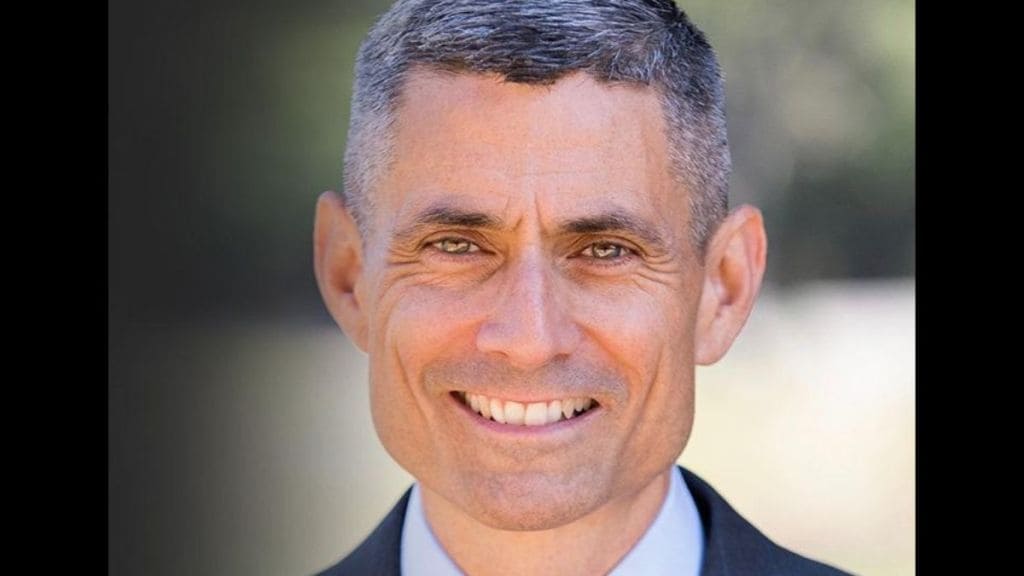Earlier this year, Indian-origin scholar and security expert S Paul Kapur emerged as US President Donald Trump’s pick for the post of Assistant Secretary of State for South and Central Asian Affairs. As a firm believer of India-US ties, and a Pakistan critic, the American representative’s succession of former post-holder Donald Lu was confirmed this week.
“Heartiest congratulations to Ambassador @SergioGor & Assistant Secretary of State Dr. S. Paul Kapur on their confirmations by the Senate! We @USIBC wish them every success in advancing America’s diplomacy as @USAmbIndia, Special Envoy, & Assistant Secretary of @State_SCA,” US India Business Council President Atul Keshap wrote on X on Tuesday (US time).
Who is Dr S Paul Kapur? About Trump’s South Asia pick
As per his own prior confession, Kapur grew up as an American kid through and through. During his nomination hearing, he foregrounded his Indian roots, as he vowed to commit himself to the US-India strategic cause.
Heartiest congratulations to Ambassador @SergioGor & Assistant Secretary of State Dr. S. Paul Kapur on their confirmations by the Senate! We @USIBC wish them every success in advancing America's diplomacy as @USAmbIndia, Special Envoy, & Assistant Secretary of @State_SCA 🙏 pic.twitter.com/36vM6T9oSL
— Atul Keshap🇺🇸 (@USAmbKeshap) October 7, 2025
“The US and India share a host of common interests: ensuring a free and open Indo-Pacific region, which is not dominated by China; expanding bilateral trade, building our economic relationship so that it is more symmetrical and profitable; facilitating technology sharing and innovation; and ensuring access to the energy necessary to fuel our economies,” he said at the time. “If confirmed, I will work to further advance US-India relations and put our partnership on course to realise its tremendous promise.”
Moreover, he even confirmed that he was born to an Indian father and an American mother in New Delhi, India. Envision his nomination for the post at the time as a full-circle moment, he said, “Although I visited India often during my childhood, I grew up in the United States as a thoroughly American kid, never imagining that my career would someday return me to the place where I was born.”
Paul Kapur on Pakistan
Back in 2016, Kapur issued a firm warning tied to Pakistan. In his book “Jihad as Grand Strategy: Islamist Militancy, National Security, and the Pakistani State,” he wrote, “Since the end of the British Raj and the founding of the Pakistani state in 1947, Pakistan has sought to promote its security interests through the use of Islamist militants. Today, militant proxies are one of the primary tools, along with conventional and nuclear forces, that Pakistan uses to produce security for itself. Jihad has become a central component of Pakistani grand strategy.”
Noting how militant group that were once under Pakistan’s control had become strong enough to pursue their own agendas, he said, “Since the end of the British Raj and the founding of the Pakistani state in 1947, Pakistan has sought to promote its security interests through the use of Islamist militants. Today, militant proxies are one of the primary tools, along with conventional and nuclear forces, that Pakistan uses to produce security for itself. Jihad has become a central component of Pakistani grand strategy.”
Voicing fears about militant groups taking charge against India, he added, “LeT could undertake unauthorised provocations against India, perhaps on a scale similar to the 2008 assault on Mumbai. India might well blame these actions on the Pakistani government, even though Pakistani leaders did not countenance them. The Indians could consequently decide to respond by using military force against Pakistan, plunging the two countries into conflict.”
Taking everything into account, he warned that Pakistan faced a “serious risk of catastrophe” if it fails to abandon its long-standing militant strategy.
And yet, he went on, “Pakistani leaders believe that, with nuclear weapons, they hold a national-security trump card. Whatever else happens in Pakistan’s security competition with India or other states, nuclear weapons ensure that the Pakistanis will not suffer catastrophic defeat. This significantly reduces the Pakistanis’ incentives to abandon their militant strategy.”
Further calling out “Pakistan’s jihad paradox,” he noted how dangerous it had, and if the country didn’t immediately stop supporting militancy, “it could face catastrophe.”
S Paul Kapur’s professional background
According to the Naval Postgraduate School, Kapur’s expertise lies in South Asian politics and security, and international relations. He is prominently known as a professor in the Department of National Security Affairs at the United States Naval Postgraduate School.
Having served on the State Department’s Policy Planning Staff in from 2022-2021, he has worked on issues associated with South and Central Asia, Indo-Pacific strategy, and US-India relations.
His other professional credits include teaching at Claremont McKenna College, and serving as a visiting fellow at the Hoover Institution and a visiting professor at Stanford University.
Paul Kapur’s name has long been held synonymous to numerous writings as well. He has authored books like “Jihad as Grand Strategy: Islamist Militancy, National Security, and the Pakistan State” (2016), and “Dangerous Deterrent: Nuclear Weapons Proliferation and Conflict in South Asia” (2017). Moreover, he’s co-authored “India, Pakistan, and the Bomb: Debating Nuclear Stability in South Asia: (2010), and co-edited “The Challenges of Nuclear Security: US and Indian Perspectives” (2024).
Kapur secured his Bachelor’s from Amherst College and PhD from the University of Chicago. Over the years, his name has popped up in leading academic journals like Security Studies, Asian Survey, International Security and Washington Quarterly, and eve outlet such as the Wall Street Journal, RealClearPolicy and the National Interest.


